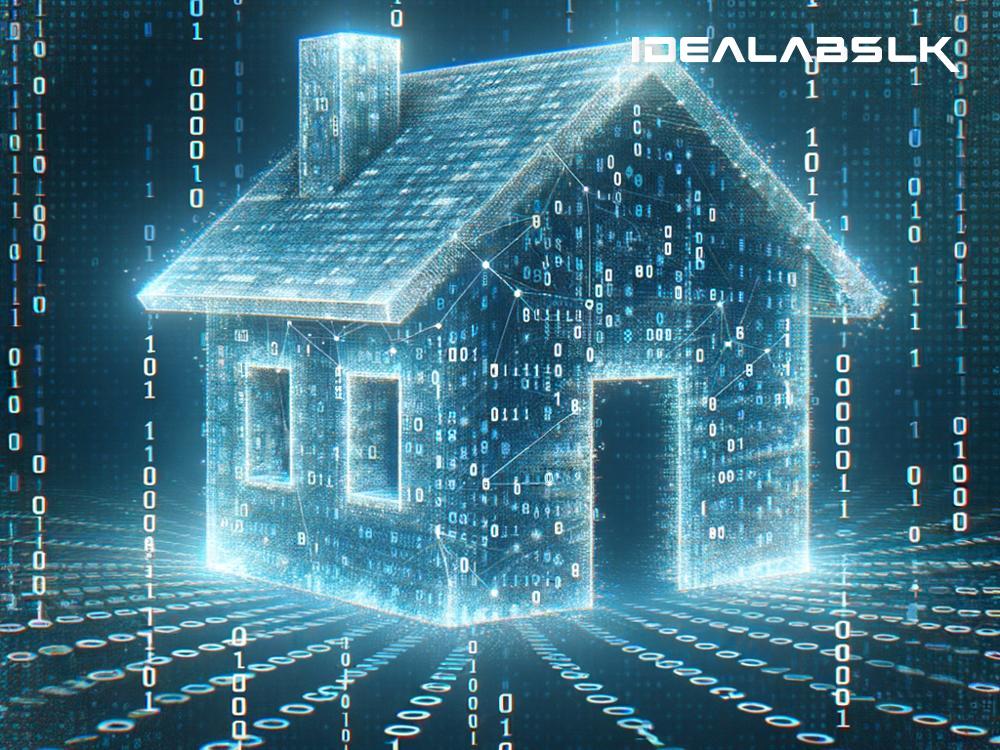Unlocking the Future of Real Estate with Blockchain: The Power of Immutable Property Records
In the world of real estate, the buzz around blockchain technology has grown louder. You've likely heard of blockchain in relation to cryptocurrencies like Bitcoin, but its potential stretches far beyond just enabling digital currencies. Imagine a world where every property transaction, from the initial purchase to the final sale, is securely recorded, transparent, and unchangeable. This is the promising future blockchain offers for real estate through the creation of immutable property records. Let's dive into why this is such a game-changer.
What is Blockchain, Anyway?
Before we get ahead of ourselves, let's break down what blockchain is in the simplest terms. Picture a digital ledger, similar to a notebook, where all transactions or records are written down. However, this isn't just any notebook. Once something is recorded, it can't be erased or altered – it's immutable. This ledger isn't stored in one place or controlled by a single entity. Instead, it's distributed across a network of computers, making it extremely difficult to hack or forge.
The Impact on Real Estate
The real estate industry is no stranger to problems. Frauds, errors in public records, and a cumbersome, slow process are just the tip of the iceberg. Now, enter blockchain technology. With its promise of immutable records, blockchain presents an innovative solution to these age-old challenges.
Transparency and Efficiency like Never Before
Blockchain can streamline the transaction process, making buying and selling properties much quicker and more straightforward. With each step recorded securely on the blockchain, buyers and sellers can see the transaction history in real time, reducing the need for intermediaries and, consequently, the costs and time involved.
A Stronghold Against Fraud
Real estate fraud is a concern for both buyers and sellers. Blockchain's immutable records offer a powerful deterrent. Once information about a property, such as title details, is on the blockchain, altering it is virtually impossible. This transparency not only builds trust but also significantly reduces the chances of fraudulent activities.
Eliminating Errors in Public Records
Human error in maintaining property records can lead to disputes that are both time-consuming and costly. Blockchain's precision in recording information can help eliminate such errors. Once data is entered into the blockchain, it's there to stay, accurate and unchangeable, ensuring property records are always up-to-date and reliable.
Blockchain in Action: Real-World Examples
While the idea of integrating blockchain into real estate is still relatively new, some trailblazers have already begun experimenting with its potential.
-
Sweden's Land Registry Experiment: Sweden tested blockchain technology for recording property transactions. This pilot project aimed to increase transparency and speed in the real estate market, showcasing how blockchain could potentially replace traditional systems.
-
Tokenization of Properties: In some parts of the world, properties are being "tokenized" on the blockchain. This means dividing property ownership into shares (or tokens) that can be bought and sold. This approach not only makes property investment more accessible but also adds a layer of liquidity to the real estate market that wasn't previously possible.
The Road Ahead
Despite its apparent benefits, the widespread adoption of blockchain in real estate is not without challenges. The technology is still relatively new, and regulatory frameworks that accommodate it are in the early stages of development. Moreover, the shift to blockchain requires significant investment in technology and training.
However, the potential benefits – reduced fraud, increased efficiency, enhanced transparency – make a compelling case for the real estate industry to embrace blockchain technology. As we move forward, the importance of immutable property records in ensuring the integrity of real estate transactions cannot be overstated.
In Conclusion
Blockchain technology offers a revolutionary approach to handling property records in the real estate industry. By ensuring that these records are immutable, transparent, and securely stored, blockchain can address many of the sector's longstanding issues. While there are hurdles to overcome, the potential for transforming real estate transactions is enormous. The journey towards integrating blockchain into real estate is just beginning, and it promises to make the industry more accessible, efficient, and trustworthy for everyone involved.

